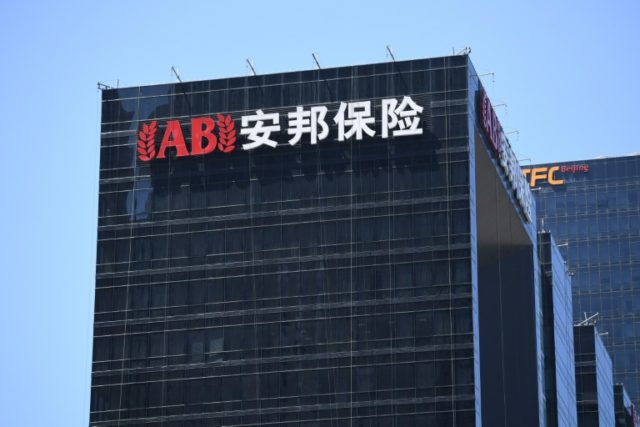Shanghai (AFP) – A Shanghai court on Wednesday opened the fraud trial of the former head of troubled Anbang Insurance Group, which the government took over last month in its escalating fight to rein in the spiralling debt of big-spending conglomerates.
Former Anbang chairman Wu Xiaohui appeared on Wednesday morning in the Shanghai No. 1 Intermediate Court, the chamber said on an official social media account.
China last month took over Anbang for a one-year period and had said Wu would face prosecution for “economic crimes” such as fund-raising fraud and other malfeasance.
The court gave no indication of when the trial would conclude, but such proceedings are often wrapped up within a day, especially in sensitive and high-level cases that the government does not want to drag out.
The swoop on Anbang was the most dramatic move yet to rein in politically connected companies whose splashy overseas investments have fuelled fears that they could collapse and trigger contagion in China’s murky financial system.
The government of President Xi Jinping, who has dramatically strengthened his political authority via a pair of recent high-level political meetings, has made cleaning up financial risks in the world’s second-largest economy a key priority.
The highly unusual commandeering of Anbang signalled deep official concern over the Beijing-based company’s financial situation.
The China Insurance Regulatory Commission said earlier that Anbang, which has made a series of high-profile foreign acquisitions in recent years, had violated insurance regulations and operated in a way that may “severely” affect its solvency.
Wu’s situation marks a startling fall from grace for a man who reportedly married a granddaughter of late Chinese leader Deng Xiaoping — and a signal that the government will move aggressively in its clampdown.
Acquisitive private companies such as Anbang, HNA, Fosun and Wanda have increasingly appeared in the government’s cross-hairs.
The four firms were in the vanguard of an officially-encouraged surge in multi-billion-dollar overseas deals by Chinese firms to snatch up everything from European football clubs to foreign hotel chains and movie studios.
But authorities have become increasingly alarmed by the conglomerates’ influence, their complex webs of subsidiaries and debt, and their capacity to trip up the Chinese economy.
The government has for more than a year implemented a host of ever-tightening measures to stem the flow of money into what it has called “irrational” investments overseas.
Established in 2004, Anbang grew rapidly from a property insurer into a financial services powerhouse, hitting headlines in 2014 when it bought the Waldorf Astoria in New York for $1.95 billion.
Among other acquisitions, in 2015 it bought US insurer Fidelity & Guaranty Life for $1.6 billion, Korean insurer Tong Yang Life for around $950 million and Dutch insurer Vivat for about $167 million.
Anbang also made a $14 billion bid for Starwood Hotels & Resorts Worldwide, eventually pulling out of a bidding war with Marriott.
It also was in aborted talks with Donald Trump’s son-in-law and adviser Jared Kushner to redevelop a Manhattan office tower, Bloomberg News reported last year.

COMMENTS
Please let us know if you're having issues with commenting.